Wedding & Engagement Ring Costs Versus the Quality & Duration of Marriage – in Uganda and elsewhere!
An engagement ring is a symbol of commitment or promise or intention to marry someone. Based on the notion that ‘a diamond is forever’, people tend to invest all they are and have in ‘diamond’ engagement rings with hopes that the high price they invest in such engagement rings will utlimately communicate their ‘big’ love and commitment to their partners and thus positively impact the duration and quality of their engagement and marriage relationships.
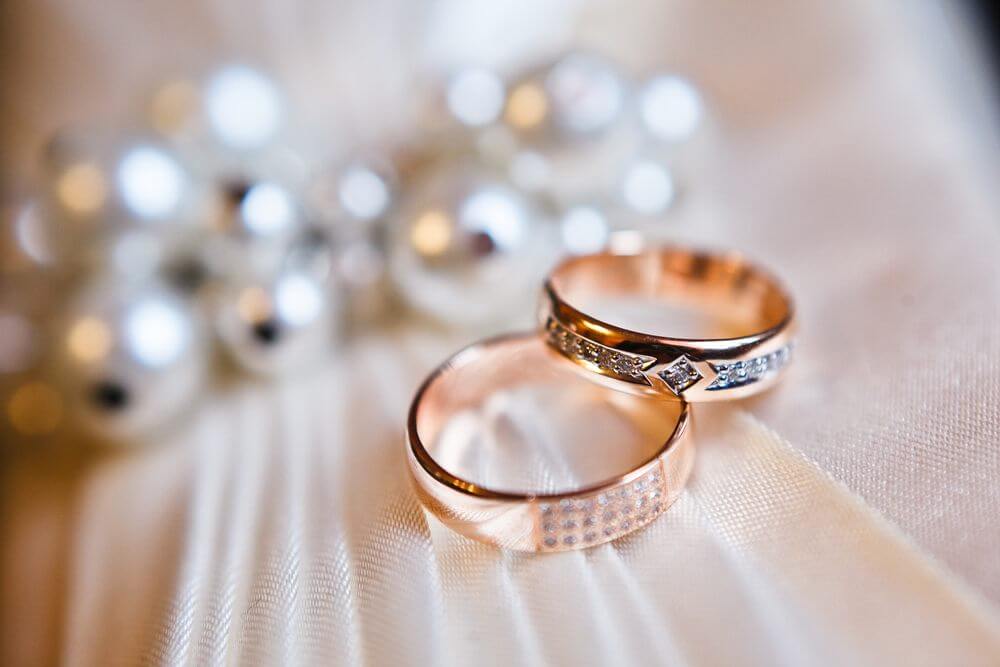
Sadly, available evidence shows that investing a lot in the engagement ring or the wedding itself may not necessarily lead to a long-lasting and happy marriage.
In this article, we will explore the relationship between engagement ring cost, wedding expenses and the quality and duration of marriage. The questions we are answering are these: Is having an expensive engagement ring or wedding ceremony related to the quality and duration of marriage? If yes, what kind of relationship exists here? (Negative or Positive relationship?)
Engagement Ring Cost & Duration and Quality of Marriage

“As the money realm expands to include more and more of material and social life, our materials and relationships become standardized commodities, the same everywhere that money can reach” – Charles Eisenstein, in the book, Sacred Economics, p. 203.
Constantly, since the 1930s, the commercial world has made introduction and wedding ceremonies a thing of business. Adverts and wedding magazines have constantly reminded the public that the safety, quality, and value of your marriage is about how much you put in it! (Francis and Mialon, 2014). What are we saying?
In all countries across the globe, the cost of introduction & wedding ceremonies is rising and threatening. Apparently, lovers aren’t scared of spending all they have on it or taking up bank loans in order to throw memorable ceremonies. After all, the consumerism industry has successfully convinced the public that ‘a diamond is forever’ (De Beers in 1930s), implying that spending a lot on a wedding or engagement ring is associated with positive results (good quality and longer duration of your marriage).
For long, these adverts or ‘rumors’ were not evaluated! But not anymore!
Engagement ring cost versus the quality & duration of marriage

Of course, expensiveness of marriage or wedding isn’t the only factor.
Both quality and duration of marriage are influenced by a complex of many interacting factors, both internal and external (Bradbury et al., 2000; Francis and Mialon, 2014) including cognitive related ones, for example, ability to comprehend, understand and interpret issues, emotion expression and management (Bradbury et al., 1996), affect (Johnson and Greenberg, 1994), body physiological issues, for example, chronic sicknesses (Stampler et al., 1997), socio-cultural backgrounds of the partners and their individual characteristics, surrounding environment, including friends, neighbors and relatives, and the available socio-cultural or even religious support of the married couples (Bradbury et al., 2000).
However, of all these, there is one single factor that has not be studied well; the financial cost of marriage versus marriage duration or quality!
Engagement ring: How the cost of wedding or kwanjula affects marriage!
The first study to be conducted on such a topic is Francis and Mialon’s 2014 work, ‘the relationship between wedding expenses and marriage duration’. In this study, 3,151 correspondents (only those who had divorced or married for more than once but not widowed) were asked about 40 well-articulated and relevant questions regarding marriage expenses including resultant stress and possible divorce.
A huge number of the correspondents indicated that spending too much on wedding or engagement ring or both is negatively related to marriage quality and duration! Get it from the researchers themselves:
“We find little evidence that expensive weddings and the duration of marriages are positively related. On the contrary, in multivariate analysis, we find evidence that relatively high spending on the engagement ring is inversely associated with marriage duration among male respondents. Relatively high spending on the wedding is inversely associated with marriage duration among female respondents, and relatively low spending on the wedding is positively associated with duration among male and female respondents” (Francis and Mialon, 2014, p. 3).
In earlier studies (Becker et al., 1977 and Dew et al., 2012), economic or financial stress had been linked to marriage dissolution or poor quality of marriage. Apparently, economic stress can affect any couple, especially the ‘poor’ ones. However, in our case, the economic stress comes in as a result of wedding debts or high expenses.
In this 2014 study, Francis and Mialon report wedding debts as the single most common factor linking expensiveness of wedding and or introduction with divorce. Specifically, spending more than 2000 dollars on engagement ring and more than 10,000 dollars on wedding expenses is likely to result into marriage dissolution or its poor quality!
You may say these are American figures, but we spend more here in Uganda context!
There are two other factors that I would love to first talk about before jumping onto a pending important question. First, the same study (Francis and Mialon, 2014) reveals that honeymoon is positively related to good quality and long duration of marriage irrespective of how much is spent on it.
In least scenarios, it has no association with quality and duration of marriage. Is it possible that too much spending for wedding and or engagement ring may affect honeymoon’s expenses or content in terms of activity, place and conversation? In other words, the couple may fail to go for honeymoon or have it in a poor place or have terrible moments and conversations as wedding financial stresses ambush the honeymoon conversations! The study doesn’t ask these questions. However, they are highly likely.
Another important factor highlighted in the study is that wedding attendance is related to marriage duration in which case high attendance is positively associated. Often, expensive weddings have low attendance or high attendance but of irrelevant connections (not emotionally attached to the couple). Could this be another reason why, generally, expensive weddings result in poor quality marriage or divorce? The study doesn’t answer nor ask these questions!
However, in an interview with CNN, the researchers revealed that high attendance may mean that friends and families have helped out with most work at no pay or at discounted costs or that the couple is friendly and thus likely to last or that the couple is ‘matching’. Expensive weddings rarely have these factors!
Engagement ring cost: What if I have the money, enough of it?
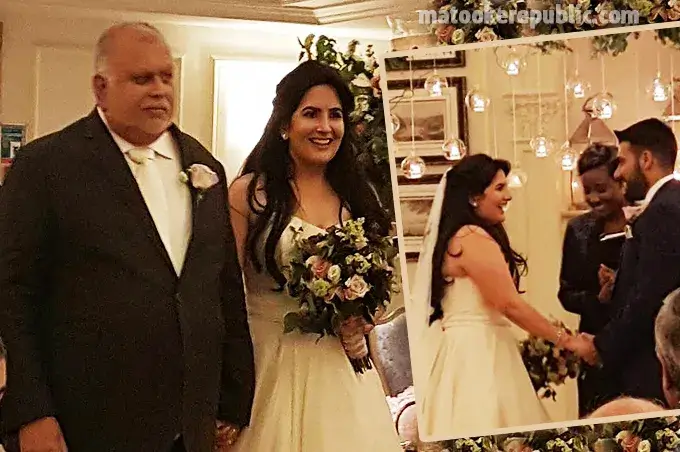
Good question. Apparently, you aren’t the first one to ask such a question. Any individual confronted with the above findings will usually intercept; what if I have the money?
Sarah D. Young, reporter and editor at Consumer affairs, says that financial stresses in marriage don’t care if you are rich or poor. In her words: “It doesn’t matter how wealthy you are. Arguments about money happen at all income levels, and they take couples much longer to get over than other issues”.
Besides, whether rich or poor, it is rare for people to put an expensive wedding without incurring some debts or financial constraints as money meant for other developmental issues is diverted into wedding expenses. Specifically, on wedding debts, many wedding couples incur some! In other words, money is never enough!
The 2019 Global weddings report indicates that about 47% of weddings incur debts. Of course, the percentage is different for different countries but, with certainty, I predict, Ugandan weddings cannot be ruled out! Actually, here in Uganda most
wedded couples have had some wedding-related debts!
In my view, even if someone had a lot of money to pay, the other factors (attendance and honeymoon) would still play. Expensive weddings rarely involve friends and families but decide to use money for any service. This means that such a couple literally has few socially and emotionally supportive friends.
On the other hand, honeymoon may be hijacked with conversations about money and wedding expenses hence downplaying the positive effect a honeymoon would have on the marriage. Additionally, notes the researchers, expensive couples are rarely ‘matching’, posing possible future marriage dissolution!
Wedding & Engagement Ring Costs and quality and duration of marriage in Uganda

Unfortunately, it is very hard to understand the dynamics of Ugandan weddings. First, I, who would report on such dynamics, don’t attend weddings (moreover expensive ones!) and neither am I a journalist or a socialist. Secondly, journalists and socialists who usually attend these weddings don’t write or simply have poor reporting! We don’t have famous or known firms that concentrate on weddings related research.
The few blogs we have do the work as usual; rumors here and there and, yeah, that is it. So, yeah, it is hard to give factual reports about Uganda expensive weddings! However, let us try.
About expensiveness, according to BBC, blogger Ruth Aine, and Apophia Agiresaasi, Ugandans are famously known for putting a lot in weddings and introductions, either as a show off of riches, a fulfillment of cultural demands or simply a need to appear or look successful in life and or, maybe, to show an ‘enemy’ that, yeah, ‘I am better’. It is not Uganda alone; it is Africa!
For example, Rema’s introduction had all these elements; show off of riches, a look of success, a note to an enemy (probably, Eddy Kenzo) that ‘I am better’ and, of course, a fulfillment of cultural or social expectations! To grasp this expensiveness of Ugandan weddings, have a look at an example of a Ugandan wedding checklist or consider the booming commercial wedding industry, including the costs of having it shown on TV!
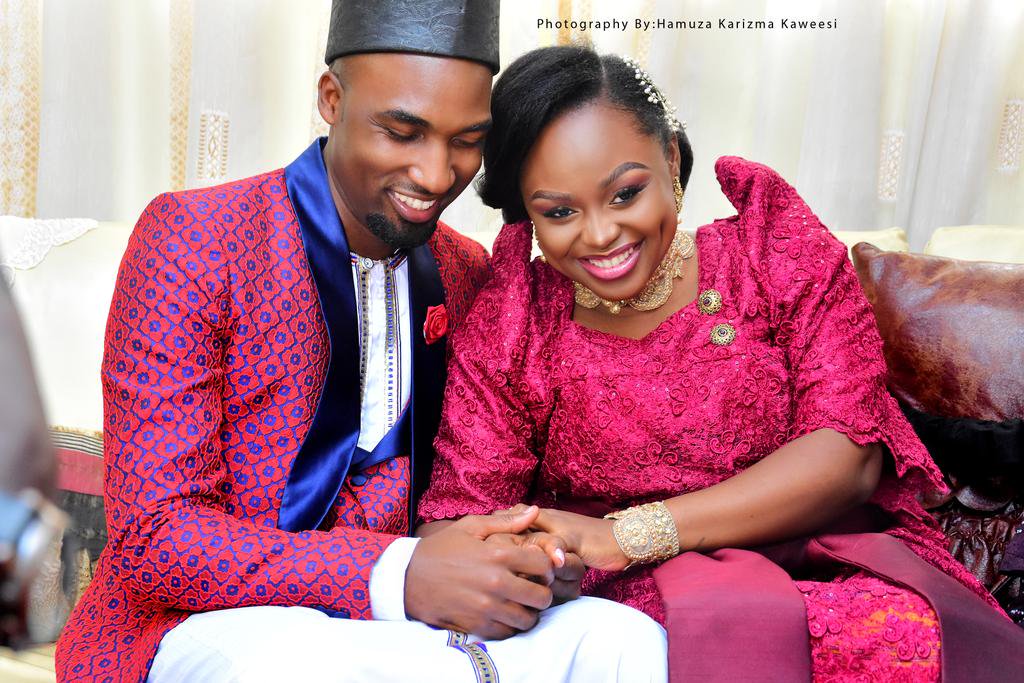
In 2013, Ugandan business man Sudhir Rupaleria threatened to inject about 2 million USD in his daughter’s wedding. This was for his first and eldest daughter, Meera Ruparelia. According to Daily Monitor’s report, indeed the wedding happened. While only 200 guests attended the main wedding event, the wealthy family had several other guests’ reception days, including the 900 guests’ reception in London and 2,500 guests celebration in Uganda. For his second daughter, Sheena Ruparelia, the rich man injected another 5 billion Uganda shillings. The wedding that had about 250 guests also happened in London.

In 2016, according to Sunrise, SK Mbuga, another rich business man was to inject 3 billion Uganda shillings in his own wedding. Indeed the wedding happened. Bloggers who wrote about this wedding were brief and, apart from reporting that it happened, they surely reported nothing statistical! (See here, here and here).
Just yesterday, another expensive introduction happened; explore Rema Namakula’s Introduction. This has been one of those controversial celebrations. Rema, formerly a wife (though not a wedded one!) to Eddy Kenzo, later got into another lover boy, Hamza Ssebunya. This relationship was featured in news for months and months as supporters of both singers (Rema and Kenzo) tried to digest well the issues behind their separation and who to rally behind in the next moves. These conversations got worsened by social media and Ugandan news agencies, including TVs, blogs, and print media.
The nastiness behind these conversations can be evidenced by terrible and abusive exchanges (see here, here and here) that happened between and among some of the known fans, this time, religious leaders (Fr. Lokodo, Muzaata, and others). Some musicians were invited and others were not.
Anyways, away from the above terrible conversations, ceremonies happened, with Kukyala on 9/10/2019 and Kwanjula (introduction) on 14/11/2019 and they were both expensive and lavish. For example, for the introduction alone, rumors have it that it costed the couple about 700 million Uganda shillings to take care of about 600 guests that attended the ceremony! Of course, compared to the weddings we have examined above, this is not the most expensive but it is among the expensive ones.
Surprisingly, different from Ruparelia’s, Rema’s introduction seemed to put much emphasis on ‘show off of money’. To understand what I am saying, read this New Vision’s article that touches on some negative aspects of this ceremony, including Ssebunya and friends’ ‘show off’ words and actions, for example, throwing money on Rema and then money, bread and sugar on streets.
With the above few examples, we have tried to show that some Ugandans have really had expensive weddings and introductions and, probably, expensive wedding or engagement rings as well. However, the most important question remains; what is the quality and duration of these relationships or marriages?
Update: Canary Mugume, the famous NBS TV Journalist introduced and married Sasha Ferguson in one of the most expensive ceremonies in 2021. According to their own reports, the wedding alone costed more than 400m. This was in addition to the many millions that they had poured into the introduction ceremony as well. The gown for Kwanjula was a very expensive one as reported by Canary himself. Later, Canary also revealed that he leave 600k UgX at home per day for daily use, usually known as Kameeza money!

Expensiveness versus quality: Ugandan Expensive but failed marriages
Like I said earlier, for reasons I hinted on above, it is very hard to get marriage related data in Uganda. However, here is the surprise, New Vision of 17th November 2019 (just 3 days after Rema’s big day) published an article entitled Uganda’s celebrity failed marriages, in which more than 12 of the most famous marriages were reported ‘dead’.
The shortest duration was that of Joel Isabirye and Rebecca Jingo, which lasted for less than a year! (Marriage was on Dec. 5th 2013 and, by November 2014, it was no more!). Apparently, the couple had had an expensive introduction that involved using a helicopter to go to some place for changing wear and then coming back! I have tried to look for their exact wedding day but in vain. Surprisingly, even within that one year of their marriage, according to these reports (see here and here), the couple didn’t have a good marriage. Their marriage was full of lies, disagreements and fights and, interestingly, most of these fights were money related!
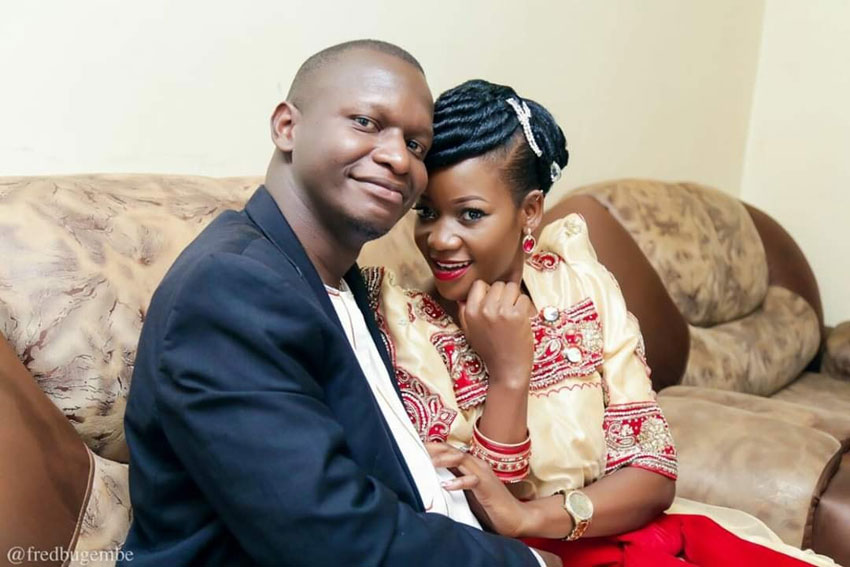
Additionally, this was Joel’s third hook-up! Earlier this year, Watchman Uganda reported that Joel has had about 10 lavish weddings or introductions and yet none of them survives!
Besides the above ‘bad beginning’ and poor ending of Isabirye and Rebecca, New Vision’s article highlights other famous but failed marriages:
Judith Babirye and MP Musoke Sebulime, Pastors Aloysius and Teddy Bugingo, Stecia Mayanja and 4 men introductions, Silver Kyagulanyi and Jalia Namazzi, Julie Mutesasira and Steven Mutesasira, Nobert Mao and Naomi Achieng Odongo, Jackie Senyonjo and Pastor Geofrey Senyonjo, Princess of Toro, Ruth Nsemere Komuntale and Christopher Thomas, Prof. Gilbert and Dr. Margarate Bukenya, Haji Moses Kigongo and Olive Kigongo, Katongole Omutongole and Tendo Tabel a.k.a. Titi, Iryn Namubiru and Franck, the list is endless.

Earlier in 2017, Sqoop released a list of some of the ‘expensive’ relationships that were not doing well. As we can see, some of them, for example, Rema and Kenzo, Zari and Platinum, and The Shongas ended up in divorce!

Update: Canary Mugumu and Sasha Ferg. ended their marriage relationship too after 3 years of marriage. Their end was bitter, for they both claimed to have suffered domestic violence (See here too for Sasha claim of abuse) It is important to note here that we cannot easily tie whatever the cause of their separation to money problems or having spent a lot on their ceremonies. However, I mean, money is the root-cause of all evil!

While it is clear that most of the featured failed weddings or marriages were expensive and the reasons for divorce, for some, still revolved around money issues, it cannot be concluded that their end was because they had spent a lot for the ceremonies (wedding or introduction or engagement and wedding rings).
Besides, even those who spend less (specifically, the poor) undergo divorce as well. Additionally, another big percentage of divorces is due to infidelity and not necessarily money, moreover wedding expenses! Is there a way infidelity can be linked to financial stresses and thus to wedding debts stresses?
To, with no doubt, link too much spending to divorce or poor quality of marriage, we need more studies. Nevertheless, the scarce information available indicates a possible link or at least a no association at all, which contradicts modern capitalist adverts that seem to say that ‘the more you spend in these ceremonies, the higher chances of long-lasting and good quality marriage’ (Francis and Mialon, 2014).
Lavishness of weddings versus morality and religion
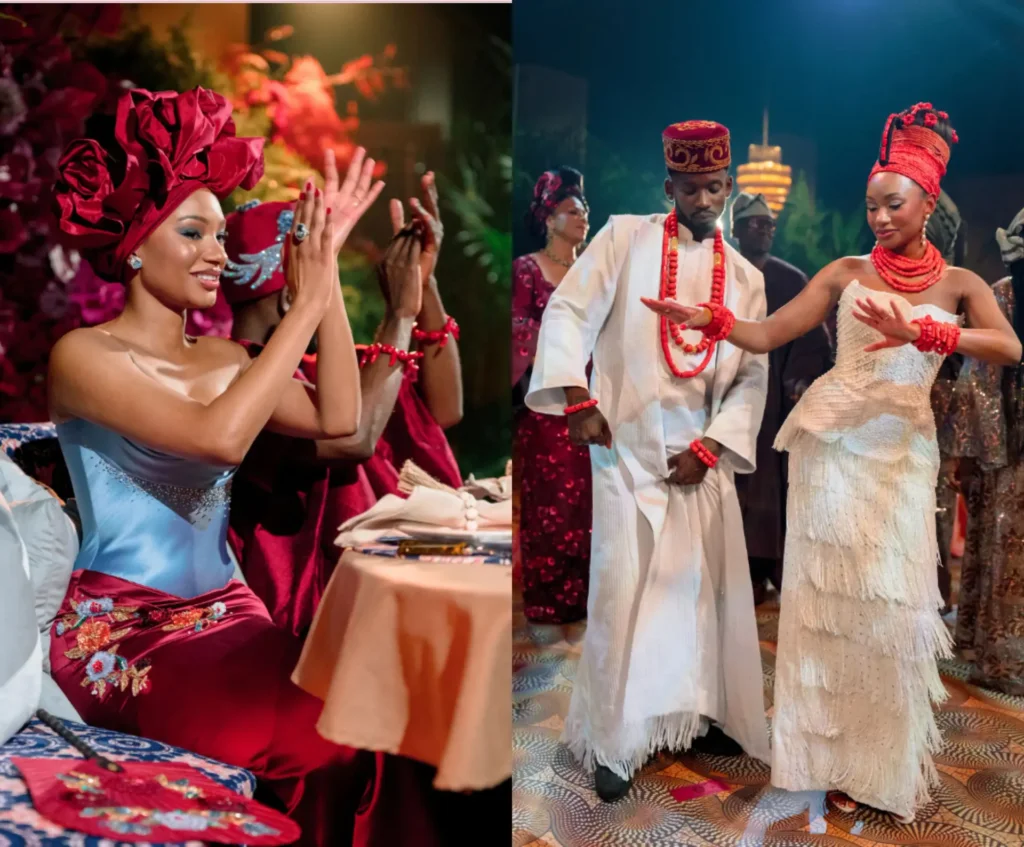
Morally, every human action is judged according to the harm or no harm it has on individuals directly and indirectly involved. To be exact, a philosophical branch of morality, utilitarianism, states that we should do only those actions that produce the best consequences for all. Living an extravagant life, on one hand, may surely hurt others. But extravagance can also benefit many. In Capitalism, especially in post 11th Sept. 2001 America, consumerism or extravagant spending is regarded as patriotism or a virtue (Binding and Bosau, 2010).
Another philosophical position of morality, divine command, calls upon humans to pay attention to divine instructions, for example, from God or gods, scripture, prophets, and traditions. Apart from few exceptions, almost all scripture, prophets and traditions ask us to spend considerably and, instead, use our surpluses to help others. Thus, spending extravagantly on a wedding or anything else is ethically and morally wrong!
Of course, to judge extravagance as wrong or right, we would have to first agree on its definition. Well, for today, we won’t dig into this. Luckily, Trent Hamm walks the miles for us in his article ‘the wisdom of frugality’. In that article, the founder of The Simple Dollar observes about three definitions of extravagance: living beyond one’s means, being wasteful or careless of costs, and living expensively to impress others or satisfy self-desires. And all of these are bad!
The question is: Where does spending too much on a wedding or introduction lie? As you struggle with moral and ethical stand on extravagance or lavishness, let’s explore what religion or theology says about it.
In one of his sermons, church father, theologian and one of the founders or defenders of Nicene Creed, Saint Basil the Great, wrote and said: “When someone steals another’s clothes, we call them a thief. Should we not give the same name to one who could clothe the naked and does not? The bread in your cupboard belongs to the hungry; the coat unused in your closet belongs to the one who needs it; the shoes rotting in your closet belong to the one who has no shoes; the money which you hoard up belongs to the poor”. Replace ‘hoard’ with ‘wastefully spend’ and you shall get the real meaning here.
And, of course, Quora answers a related question here: What would Saint Basil the Great say in relation to lavish lifestyle? Not so good! For more about Saint Basil, explore encyclopedia’s article on him.
Frankly, from the story of prodigal son who luxuriously spent his inheritance (Luke 15), the man who believed in his full granaries instead of gracious provisions from God (Luke 12), the rich and luxurious man who wouldn’t take care of the poor and begging Lazarus (Luke 16), to the fool who stupidly spends all his wealth (Proverbs 20:21), Bible openly condemns luxurious spending.
In our earlier writings, slay queens and the Bible, we had confessed the truth behind luxurious living; it encourages evil ways of making money and cancels out actions of love like helping those in need. Instead of spending our surpluses on the poor and needy or simply provide a general social service like a school or hospital, wasteful spending on a wedding or any other thing promotes self-glory, shows off wealth and power and an image of self-sufficiency and reliance in the face of many who would survive on our simple gestures of love and generosity!
For more on what theology or the Bible says about luxurious life, explore John Piper’s take.
Islam too takes a strong stand against extravagance. According to Marifatul Haq Yasini, living an extravagant life is contrary to principles of Islam and reveals man’s ungratefulness to God’s provisions. While quoting Quran, he says that Allah says this of extravagance: “Allah loves not the wasters”. Actually, extravagance and wasteful spending is regarded as one of the greater sins in Islam (the 32nd greater sin).
Wait! What if it is just an occasional spending, some moment of extravagance, for example, for a wedding only? Logically, a sin remains a sin! However, in the Bible, it isn’t clear if extravagance is a straightway sin in itself! For this, it may be hard to make a stand on this question.
Generally, morally, ethically and religiously, it is wrong to wastefully spend money, especially if motivated by wrong motives like show off, self-promotion, competition and more. But what if none of these motives are behind someone’s lavish spending? What if someone simply has money, and would like to spend it on themselves by having the best of the best weddings?
Ensuring Good Quality and Long Lasting Marriage!

It wouldn’t be good to point out things and issues that lead to divorce without discussing those that don’t, would it? In relation to this, I turned to a weird website for this kind of conversation; the money crashers! In an article summarizing serious recommendations by the 2014 research study by Francis and Mialon, Money Crashers’ Amy Livingston recommends about 7 precautions to ensure good quality and lasting marriage:
- Don’t rush into marriage
- Marry someone who shares your religious views
- Don’t marry for money or looks
- Don’t buy a big ring
- Don’t have a splashy wedding
- Do invite lots of people
- Go on a honeymoon
As the always, the above are just studies and people’s opinions and, truly, they aren’t true, not in all contexts. If you asked me, what is that one secret that keeps marriage together and of good quality, I would confidently say GOD’S GRACE. And if you asked me, what is God’s grace, I would gladly answer, I exactly don’t know.
Summary: Wedding and engagement rings costs versus quality and duration of marriage

For long, modern capitalism and wedding industry have, through products and services and adverts, portrayed that spending a lot on a wedding or engagement ring shows commitment, value, and respect one has for their partner and thus cements relationships and ensures good quality and long lasting marriage. However, on contrary, recent studies have revealed the opposite, in which case, lavish introductions and weddings rarely end in quality and sustainable marriages but cause poor quality and short marriage duration.
On another side, wasteful spending is morally, ethically and religious wrong, and this is worse if accompanied with motives like show off, competition, self-promotion and other evil desires. However, occasional spending on occasional functions is seen by some as a virtue or a heroic action, for example, the American call for consumerism post 11th Sept. 2001 attack.
To score a good quality and everlasting marriage, researchers tell us to take time to know each other (time is not the point; knowing each other is), look at compatibility of our religious views, consider factors beyond money and looks, involve friends and families, and thus high attendance, spend considerably on engagement ring and wedding and, yeah, include honeymoon. However, as I earlier noted, all these are opinions. The success of any marriage relationship is provided for by God’s grace!
Some References
Binding and Bosau (2010). Branding America: Patriotic Products and Consumerism After September 11th. In S. Quay and A. Damico (Eds.) September 11 in Popular Culture. Westport, CT: Greenwood Publishing.
Eisenstein Charles (2010). Sacred Economics. Money, Gift and Society in the Age of Transition
Bradbury et al. (2000). Research on the Nature and determinants of Marital Satisfaction: A decade in review. Journal of Marriage and the Family 62 (November 2000): 964–980
Francis and Mialon (2014). A’Diamond is Forever’ and Other Fairy Tales. The Relationship between Wedding Expenses and Marriage Duration. Andrew Francis and Hugo Mialon, Department of Economics, Emory University, Atlanta, GA 30322-2240




